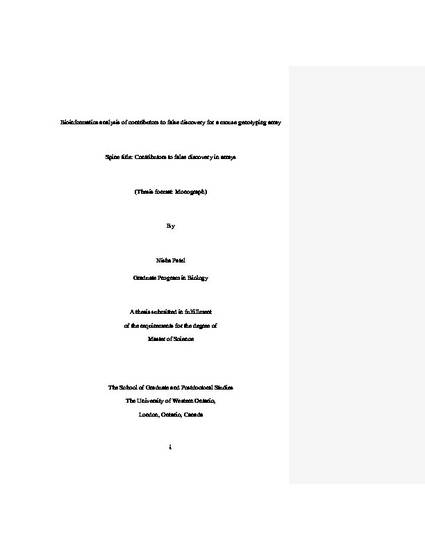
Thesis
Final Thesis for Submission.pdf
(2018)
Abstract
Microarrays massively-parallel hybridization are valuable for the study of genetic variation though experiments are limited by false discovery and single species design. The Mouse Diversity Genotyping Array (MDGA) is a low cost, high-resolution microarray with probes that bind to target DNA for variant detection. Errors associated with probe design and ineffective protein removal from target DNA lead to false discovery and thus necessitate examination of probe suitability and target DNA availability. Bioinformatics methods were used to carry out confirmation of probe annotations, assessment of DNA accessibility for hybridization to probes, and prediction of the theoretical ability of MDGA probes to hybridize cross-species to naked mole rat genomic DNA. The results are a filtered probe list demonstrated to reduce false discovery, a suggested approach to assess biases arising from protein-bound DNA, and predictions for cross-species application of the MDGA to naked mole rat samples.
Keywords
- Mouse Diversity Genotyping Array,
- hybridization,
- microarray probes,
- copy number variants,
- single nucleotide polymorphism,
- SNP genotyping,
- cross-species hybridization,
- Mus musculus,
- Heterocephalus glaber
Disciplines
Publication Date
Winter April 30, 2018
Citation Information
Nisha Patel. "Final Thesis for Submission.pdf" (2018) Available at: http://works.bepress.com/nisha-patel/1/